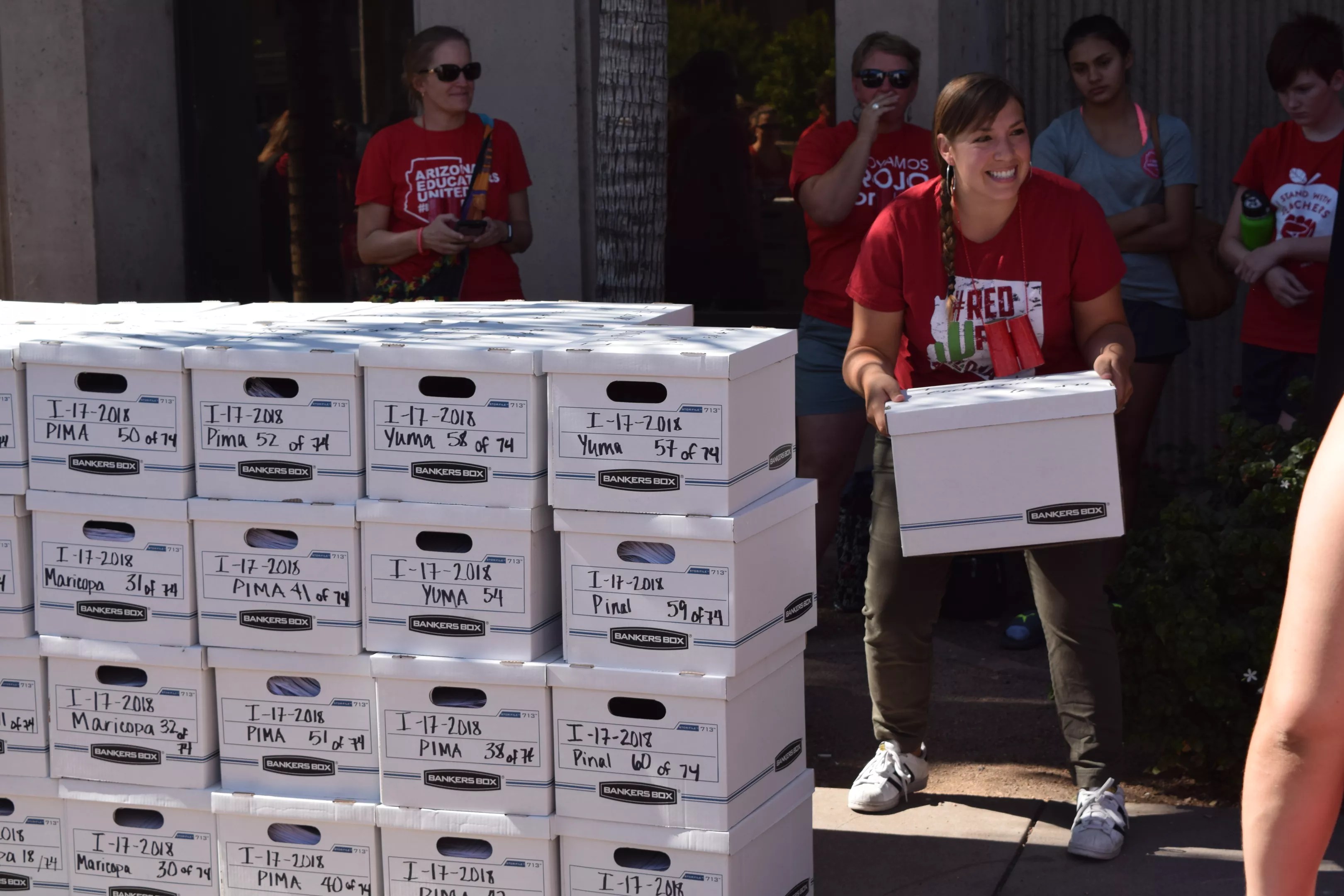
Joseph Flaherty

Audio By Carbonatix
In something of a “Groundhog Day” moment, a plan to tax wealthy people to raise money for public schools has been kicked off the ballot yet again.
On July 31, Maricopa County Superior Court Judge Christopher Coury ruled that the Invest in Education measure can’t go before voters because its 100-word summary used by petitioners was misleading. The ruling comes roughly two years after a similar ballot initiative was booted off the general election ballot in 2018 by the Arizona Supreme Court, which also cited inaccuracy in the petition summary.
But this year’s legal battle isn’t over yet. Backers of the Invest in Education Initiative plan to appeal the ruling to the state Supreme Court.
“Our state has more than 1.1 million K-12 students that Judge Coury let down today with his judicial activism – and that’s shameful,” said Joe Thomas, President of Arizona Education Association, in a statement. “435,669 voters signed this petition during the COVID-19 pandemic and triple-digit heat to let voters decide how to fix the Arizona education crisis. Instead of respecting the voters, Judge Coury inserted his own political views throughout his baseless ruling. We will appeal immediately.”
The ballot initiative would levy a 3.5 percent income tax on individuals with incomes above $250,000, and married couples with incomes over $500,000. Proponents expect the measure to raise hundreds of millions of dollars annually for the public K-12 system, paying for things like teacher salaries and career and technical education programs, with only a fraction of Arizonans paying for the tax.
The measure was quickly challenged by opponents in court soon after the campaign submitted its petition signatures on July 2. A lawsuit was filed by Arizonans for Great Schools and a Strong Economy, a group backed by the Arizona Chamber of Commerce that targeted the wording of the 100-word summary of the measure on petitions.
The group appears to have won – for now. Judge Coury ruled that the summary of the measure left out five key provisions, such as how the tax revenues would be distributed in terms of percentages. In his ruling, Coury called the summary “misleading” and that the Invest in Education campaign “legally failed” in its “obligation to provide transparency to Arizona’s voters.” His order barred the Arizona Secretary of State from certifying the initiative and placing it on the November 2020 ballot.
Jaime Molera, chairman of Arizonans for Great Schools and a Strong Economy, praised the ruling in a statement.
“This was the right decision. As we made clear, the tax increase proponents’ entire process, from signature gathering to their 100-word summary, was flawed and misleading,” he said. “Perhaps most troubling, however, is that their proposed policy would have done tremendous harm to the Arizona economy and the state’s small businesses during a particularly challenging time. Should the proponents appeal the decision to the state Supreme Court, we anticipate the same outcome.”
In contrast, House Democratic Leader Charlene Fernandez (D-Yuma) blasted the ruling as hinging on a mere technicality.
“Our public schools deserve better than this. This ruling – which elevates a technicality over our constitutional right to direct democracy – disregards the 400,000 plus Arizona voters who wanted this to go forward. Voters knew exactly what they were signing with Invest in Ed, we’ve been talking about this issue for years. There was no confusion,” he said. “This judge held Invest in Ed to an impossible standard where a ballot measure must – in effect – use its opposition’s talking points and include minor aspects of the proposal that can’t possibly fit in 100 words. Arizona schools and teachers have been disrespected for too long, and the Arizona Supreme Court should right this wrong as soon as possible.”
Read the full ruling here: